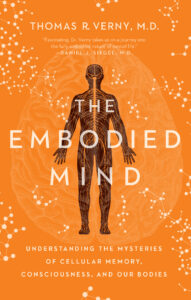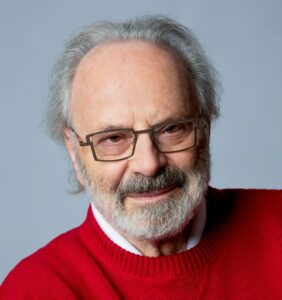The Embodied Mind shows us that the mind is not constrained to the brain. Our mind relies on all of the cells in our body…it’s more like a network than one specific location. And what does epigenetics teach us about our environment and the part it plays regarding our health and happiness?
Listen now to About Health, KPFA.org, 94.1 FM—9/13/21

“Genes don’t make us who we are. Gene expression does. And gene expression varies depending on the life we live. In other words, the food we eat, the water we drink, the air we breathe, our interpersonal relationships, and our relationship to ourselves – they all affect us on a deep biological level which in turn affects our minds. Recent discoveries in epigenetics have made it abundantly clear how nature (genes) and nurture (the environment) work in concert. It is not one or the other that is responsible for a disease or personality trait. The only thing we know for sure is that we are the product of a dynamic interaction between these forces and that nothing about us is written in stone.“—Dr. Thomas Verny

Thomas R. Verny is a clinical psychiatrist, academic, and author of eight of books and 47 scientific papers, including The Secret Life of the Unborn Child, which was published in 27 countries. His most recent book, The Embodied Mind, will be available on 10/5/21. He has participated in more than 250 newspaper, radio and TV interviews, including appearances with Donahue, Merv Griffin, Oprah, Sally Jessy Raphael, Barbara Walters, and Unsolved Mysteries—these interviews are available at trvernymd.com. He has taught at Harvard University, University of Toronto, York University (Toronto), and St. Mary’s University of Minnesota. Thomas lives with his wife in Ontario, Canada.


